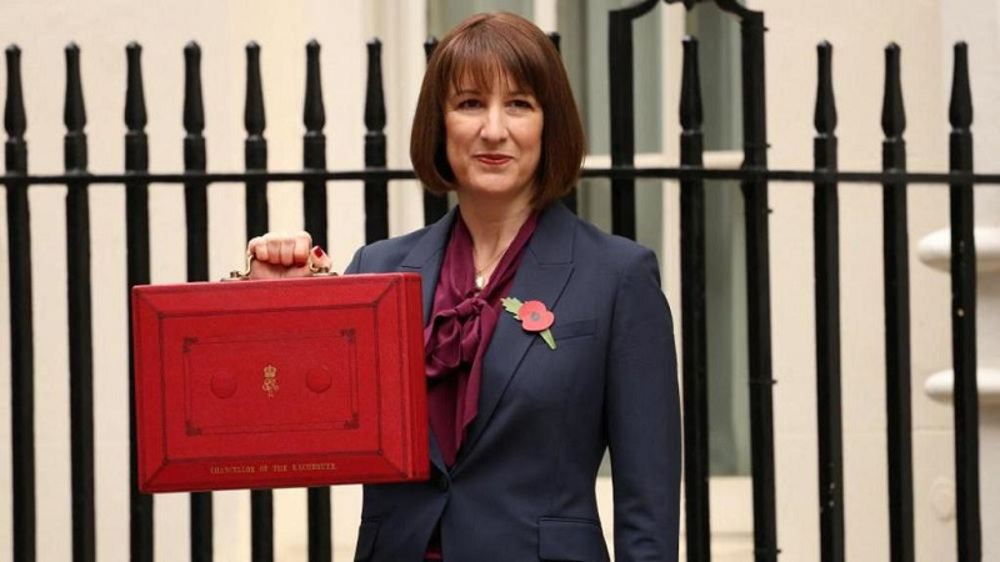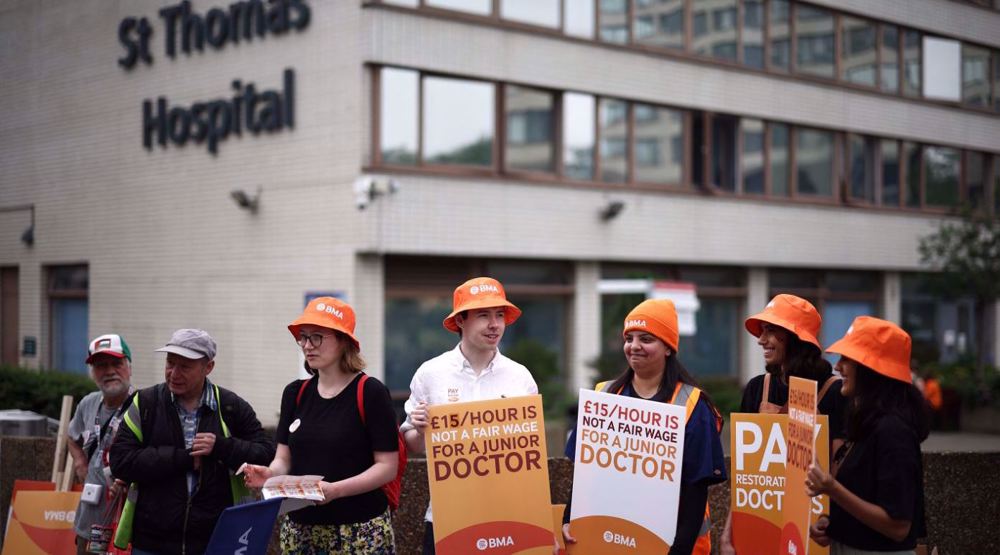UK economy fails to grow ahead of Brexit-dominated election
The UK economy unexpectedly stagnated in October, marking three straight months without growth for the first time since 2009.
Gross domestic product was unchanged following two consecutive months of decline, the Office for National Statistics said on Tuesday. Economists had forecast a 0.1% expansion. GDP rose just 0.7% from a year earlier, the smallest increase since June 2012.

The services sector grew from September, as did manufacturing as stockbuilding resumed ahead of the now-postponed Oct. 31 Brexit deadline. However, this was offset by lower oil production and the steepest drop in construction output since the beginning of 2018.
The figures, which provide the last economic snapshot before voters go to the polls on Thursday, highlight the toll being taken by years of Brexit uncertainty and a worsening global backdrop.
Output stagnated in the latest three months, and Britain is on course for growth of little more than 1% this year, its worst performance since the financial crisis a decade ago. PMI surveys for November showed the economy contracting across the board.
Polls suggest the Conservative Party is heading for a parliamentary majority in the Dec. 12 election, which would allow Prime Minister Boris Johnson to deliver on his pledge to deliver Brexit by the new deadline of Jan. 31.
His rival, Labour’s Jeremy Corbyn, has promised to renegotiate the exit agreement and then give the public the final say on whether Britain should leave the European Union.
Key insights
- The services sector grew 0.2% in October, the first expansion for three months
- Manufacturing rose 0.2%, as factories carried out orders for companies fearing a no-deal Brexit on Oct. 31. Stockpiling was not on the scale seen ahead of the original March 29 deadline, the ONS said
- Overall industrial production climbed 0.1% as below-average temperatures boosted demand for energy. This was partly offset by lower oil production after the largest North Sea field, Buzzard, was closed for repairs for much of the month
- Construction output fell 2.3% from September, the most since January last year. Builders reported disruptions caused by wet weather, though the sector has been hit by firms delaying or cancelling projects due to Brexit uncertainty
- Stockpiling was also evident in trade data, as imports jumped more than 8% on the month amid demand for foreign-made machinery, transport equipment and chemicals including drugs and medicines. Non-monetary gold shipments also rose
- With exports rising less than 2%, the trade deficit widened to 14.5 billion pounds ($19 billion), the highest since March
(Source: Bloomberg)
Dec. 22: ‘Axis of Resistance’ operations against Israeli occupation
‘Abhorrent’: Oxfam says only 12 trucks delivered aid in North Gaza since Oct.
VIDEO | Leader receives religious eulogists on Hazrat Fatima birth anniv.
Pope Francis slams Israel’s ‘machine-gunning’ of Gaza children
US hostage-taking of Iranian nationals violation of intl. law: Deputy FM
VIDEO | Carol Singers for Palestine on London’s Parliament Square
Ansarullah says ‘Israeli terrorists’ incapable of confronting Yemen, warns of secret weapons
VIDEO | Yemenis praise the military for its successful operations against Israel










 This makes it easy to access the Press TV website
This makes it easy to access the Press TV website